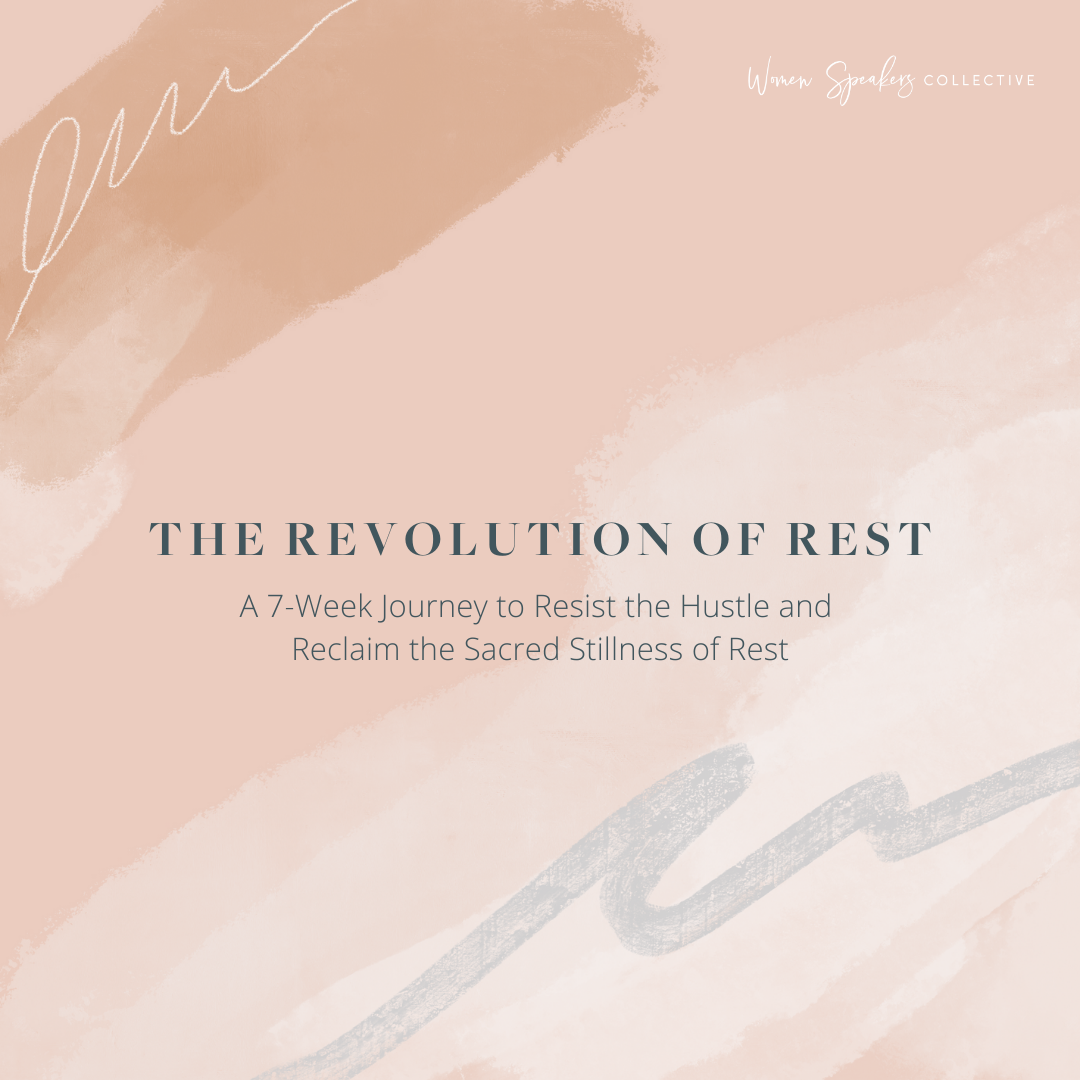Rest is Holy: The Truth About our Time
WRITTEN BY AMBER TREMBLETT
How many times have we wished there were more than 24 hours in a day? How many times have we disregarded our day off because we simply had too much to do?
In 21st century hustle culture, the narrative surrounding rest is that it is bad, it is a waste of time, and it is detrimental to our success. Many of us have bought into a lie that says we must always be productive, always be creating, and that we must value efficiency above all else.
Our ability to forego rest is the scale we use to measure our worth and our morality.
Women, especially, have been particularly subject to this lie. In a world that refuses us time and space, we have come to perceive rest as evil, fearing that if we don’t work, the time and space we have so painstakingly worked for will be taken from us by somebody else. And this work has become our identity. Our ability to forego rest is the scale we use to measure our worth and our morality. It has become our pride. We boast in our busy-ness instead of our Lord and it has left us emptier than he ever intended us to be.
But what if we stopped believing the lie and changed the narrative? What if we started believing our God? We could start a revolution. A revolution of rest that re-forms us toward our Creator and who our Creator designed us to be.
Rest is Holy
The truth is that Rest is Holy. In Genesis chapter one, God spends six days creating the universe. On the seventh day, He rests. But He doesn’t just rest. Scripture tells us that “God blessed the seventh day and hallowed it, because on it God rested from all the work that he had done in creation.” (Gen 2:3, NRSVUE, emphasis added). God blessed his day of rest and made it Holy.¹
Later in the Old Testament, God called this day of rest, “Sabbath”. The Hebrew word, “Shabbat,” literally means “to cease” and “to rest.” God considered the Sabbath so important that it appeared in the Ten Commandments, the very foundation of Jewish Law. God says, “Remember the Sabbath day and keep it holy” (Exodus 20:8, NRSVUE).
We are commanded by God to rest, yet we refuse. God made rest holy and yet we treat it as if it is cursed.
What would happen if we embraced that holiness, claimed it, and lived it instead? Jewish scholar, Abraham Joshua Heschel, teaches us in his classic work, The Sabbath: It’s Meaning for Modern Man, that the Hebrew word used for “holy” is “qadosh.” First appearing in the Bible in Genesis 2:3, rest is the first thing that God declares Holy.²
Time is Holy
In other words, the first thing God makes Holy is time. Not our church buildings, not our sacred items, and certainly not all the things we think we need to produce. God invites us to treat our time, specifically our Sabbath time, as sacred.
God instructs us to rest because He himself rested (Exodus 20:8-11). We were made in God’s image and the practice of rest is us learning to bear the image of God. Learning to rest in God’s holiness untangles our worth, thread by thread, from the confusing web of hustle culture and instead ties us to God and his everlasting grace and love. Rest transforms us into holy beings as we turn our worship away from our work and back to our worthy God.
To embrace rest as holy is to surrender our lives to God. When we reverence our time of rest—when we actually take the time to cease work—it signals a letting go, a giving back to God what was always His.
Our lives are not our own. In the micromanaging of our busy schedules, we have lost sight if the fact that rest is an invitation into God’s holy time. We believe that rest is unrealistic, unobtainable, and impossible. But as we learn to listen again to God’s voice reminding us that the Sabbath is holy, we will grow to trust that rest really is a gift for our greatest good.
Resting in Sacred Stillness
The Revolution of Rest is an invitation to re-evaluate your relationship with rest. The starting point for this reflection will always be God and our relationship with him.
To rest is to spend time intentionally seeking the presence of God. Rest gives us sacred stillness that is not possible in a life controlled by the grind. And it is in that sacred stillness that God is most easily heard.
Rest was given to us by God. How could we do anything but accept that glorious and holy gift?
Sources:
1 Heschel, The Sabbath: Its Meaning for Modern Man (New York: Farrar, Straus, & Giroux, 1951), 3,4,8,9
2 Heschel, The Sabbath: Its Meaning for Modern Man (New York: Farrar, Straus, & Giroux, 1951), 3,4,8,9.About the Author
Amber Tremblett is a full-time Anglican priest in Newfoundland and Labrador, Canada. Besides writing, she expresses her creativity through crocheting and figure skating. She loves to read and is an avid consumer of book-related social media content. Amber's favourite place to rest is by the ocean. If you’d like to read more of Amber’s writing, she has been published in Clayjar Review, and she runs a personal blog, which you can find at amberiswriting.wordpress.com.
Will You Journey With Us?
Each week, we’ll share relevant blog posts, practical social media content, thoughtful reflection questions, meaningful prayer guides, Sabbath invitations, and ideas to incorporate rest as a rhythm in your own life.
Will you join us in this quiet revolution and begin to dip your toes into the peaceful waters of rest?
Join our email list and turn on notifications for our Instagram posts to rest, restore, and regenerate with us this summer.






